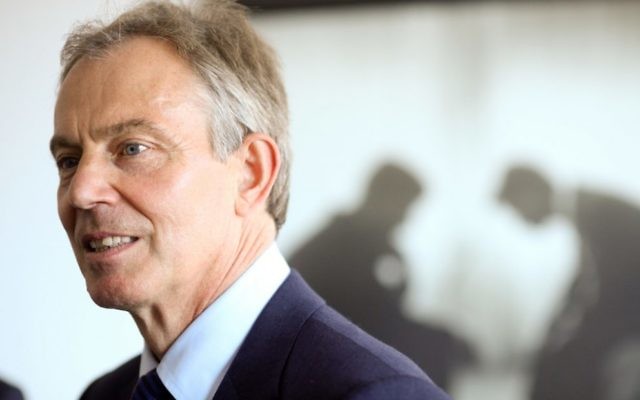Optimism over ties with Arabs
THERE was something unusual in the air at Israel’s top global policy conference, which has just finished – a hint of optimism.
THERE was something unusual in the air at Israel’s top global policy conference, which has just finished – a hint of optimism.
Amid all the usual predictions of rounds of violence and discussions of all the obstacles lining the route to Israeli–Palestinian peace, there were repeated references at the Herzliya Conference to bridge-building between Israel and Arab countries.
“We have achieved an amazing and unprecedented relationship with Arab states,” said Amos Gilead, who recently retired from one of Israel’s top defence positions. “It was a previously bad situation but President [of Egypt Abdel Fattah] el-Sisi has been able to take control of the Muslim Brotherhood.”
Gilead, who headed the Defence Ministry’s Political-Military Bureau, added: “Jordan is our eastern security net. The border with it is protected and impenetrable and this is a huge asset.”
The optimism was echoed by international speakers as well as Israelis. Former British Prime Minister Tony Blair said: “A new relationship between Arabs and Israelis is definitely today possible; and tantalisingly close.”
Gilad Erdan, Israel’s Minister of Strategic Affairs and Information, filled in details on Israel’s efforts at bridge-building, saying that Israel has a “historic opportunity” to build a new anti-terror coalition, which will include Israel, the United States, Europe, moderate Arab states, Asian states such as India, and others.
He said: “I’m working together with my colleagues from around the world to build this coalition. I have recently met with [US] Homeland Security Secretary John Kelly and we agreed on establishing this coalition and collaborating on the threat posed by drones.
“As long as each country or each geography fights on its own, our success will be limited.” However, if countries band together they can “deliver a lethal blow” to terrorist organisations.
Opportunities for Israel to build ties with Arab states are piquing more interest than ever, a month after US President Donald Trump visited, enthusing about the possibilities for increasing connections.
Shortly after Trump departed, Saudi Arabia and other Arab states cut ties with Qatar, partly because of its support for Hamas – a development that may help Israel’s relations with Arab states.
Despite the optimism of these speakers on Israel’s connections in the region, there was plenty of pessimism at the conference, which took place at Herzliya’s Interdisciplinary Centre.
“The greatest threat, at a practical level, is Hezbollah,” said Naftali Bennett, Education Minister and leader of the right-wing Jewish Home party.
“From a relatively small group in the 1990s they grew into a monster.” He went on to say, “Today we are talking about some 130,000 rockets and missiles aimed at Israel’s cities.”
Amir Eshel, Commander of the Israeli Air Force, said: “If a war breaks out in the Northern arena, we need to act with full force from the beginning.”
He predicted: “In the next war we will be called on to fight while our bases are under fire.”
Nevertheless, Eshel said that Israel can today act more efficiently against threats by the northern border. He commented: “What we could do in 34 days during the Second Lebanon War, we can now do in 48 hours.”
Opposition leader Isaac Herzog evoked both optimism and pessimism at the conference, saying that there are impressive Arab leaders today that Israel can work with, such as the Egyptian President Abdel Fattah el-Sisi who he called “one of the most important and courageous leaders in the world”.
Herzog spoke about a secret peace summit convened last year by el-Sisi, which he attended with the Israeli Prime Minister Benjamin Netanyahu. This “was the most dramatic and significant peace initiative in the last few years”.
At the time of the summit, Herzog was considering entering the government to support Netanyahu in a peace process.
But he said that Netanyahu “squandered” the opportunity arising from the summit in Egypt, and declared: “I have learned my lesson and from my experiences, I now know that Netanyahu is not capable of reaching peace with the Palestinians. He can speak, procrastinate and bluff. One day, the White House will have had enough.”
NATHAN JEFFAY


comments